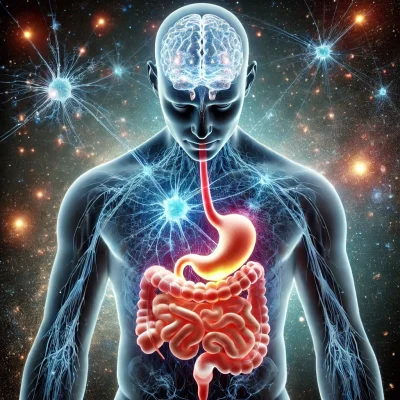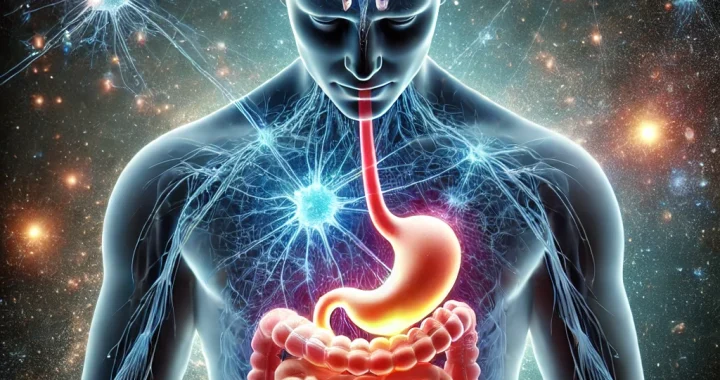
Gut Instincts: The Second Brain you didn’t know you had
There are many phrases we use in the English language to describe a feeling, or even a sense of ‘knowing,’ phrases such as, “I have butterflies in my stomach” that we often confess to feeling before a public appearance or even when meeting someone for the first time.
“I have a gut feeling about this”
How many times have you instinctively known something was going to occur or ‘felt in your gut’ that something was wrong? Well, there’s more to it than intuition – your gut literally has a mind of its own.
When it comes to your moods, decisions and consequently your behaviour, according to the latest advance in understanding the gut-brain connection, the brain in your head is not the only one doing the thinking.
Wrapped around your digestive system, is a vast neural network called the Enteric Nervous System (or ENS). With over 100 million Neurons, this ‘second brain’ is constantly at work, digesting meals, managing reflexes and even influencing emotions.
The ENS plays a major role in how you feel, think and react to the world around you.

Research into the physiology of the gut–brain connection actually began in the 19th century.
In the 1840s, a surgeon from the U.S army – William Beaumont, demonstrated that different emotional states actually affect digestion rates, which led to the concept of bi-directional communication between the gut and the brain, which is often known as the “gut–brain axis.”
This gut-based system can communicate with the brain via the vagus nerve and has an estimated 168 million nerve cells.
About 90% of the fibers in the vagus nerve, the main connection between your gut and brain, send signals from your gut to your head—not the other way around. Your gut has a lot to say.

Ever noticed how stress can upset your stomach? That’s because your second brain is closely tied to your emotions. It produces over 30 neurotransmitters, including serotonin – the chemical that helps regulate mood.
In fact, 95% of the body’s serotonin is found in the gut, not the brain. That’s why some antidepressants that target serotonin levels can also cause digestive issues.
Your gut and your emotions are more connected than you might think.
“Trust your gut.” We say it all the time, but there’s real science behind it.
Studies show that people with digestive disorders like irritable bowel syndrome (IBS) often struggle with anxiety and depression. On the flip side, chronic stress and trauma can throw off gut function, creating a loop where one affects the other.
Interestingly, stimulating the vagus nerve [a treatment already used for depression], can mimic the natural communication between the gut and brain.
Some scientists are now asking: Could better gut health actually be the key to treating mental health issues?
The gut–brain connection was first illustrated by Ivan Pavlov, who was awarded the Nobel Prize in Physiology in 1904 for the work he had accomplished in this area, which expanded on Beaumont’s early research.
Yet, it is only recently that the role of the gut microbiome in neurological function has been recognised.

Your gut’s influence goes beyond digestion and emotions.
Researchers are linking gut function to conditions like osteoporosis, immune disorders, attention-deficit hyperactive disorder (ADHD), Parkinson’s disease and even autism. The same genes that help neurons connect in the brain also influence gut nerve pathways, which might explain why so many children with autism have digestive issues.
Then there’s the gut microbiome – the trillions of bacteria living inside your body, that outnumber your own cells.
These tiny organisms interact with the ENS, affecting inflammation, immunity and even brain function.
Understanding this gut-microbe-brain connection could fundamentally change the way we treat everything from depression to neurodegenerative diseases.
Your gut influences your mood, protects against disease and helps to govern your overall health.
As research in neurogastroenterology grows, one thing is clear: listening to your gut isn’t just a saying – it’s smart advice.
Be mindful of what food you consume and don’t go straight for the food cupboard when you feel the pangs of hunger, try drinking a glass of water instead.




